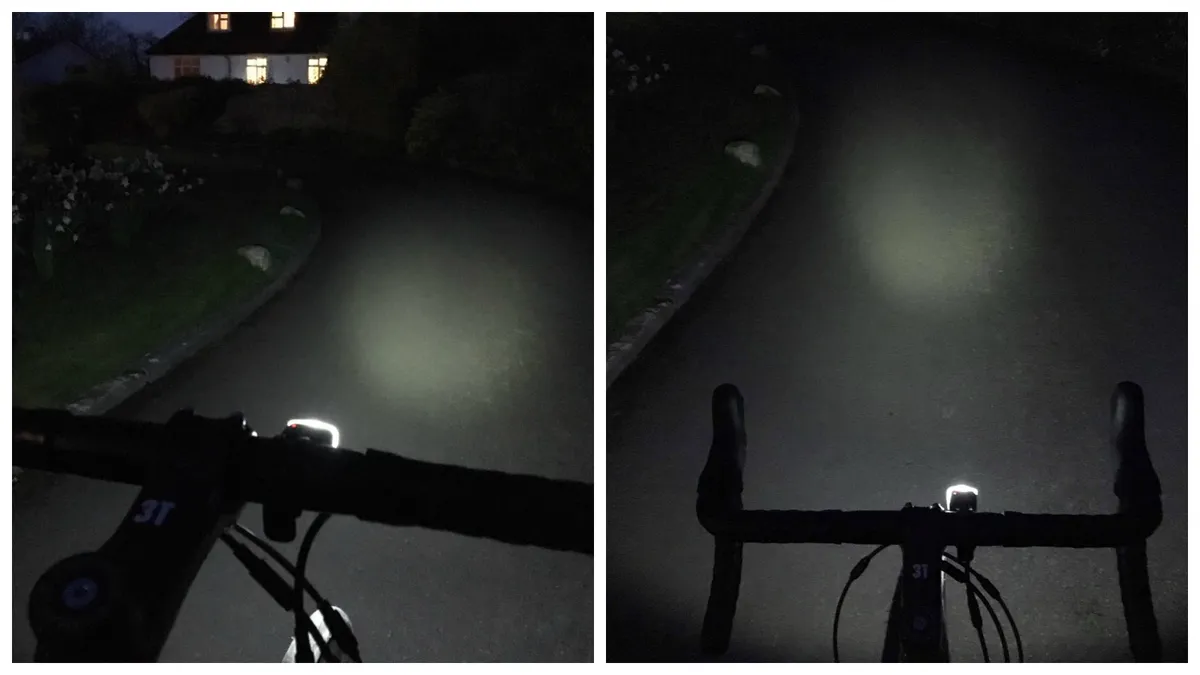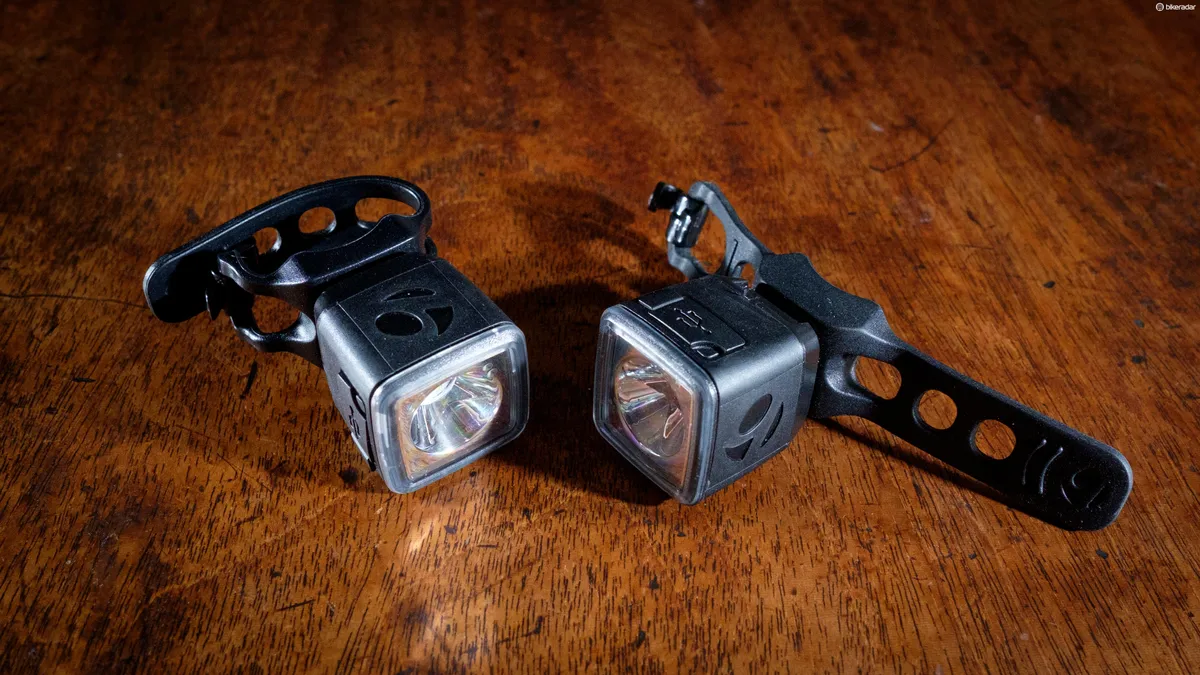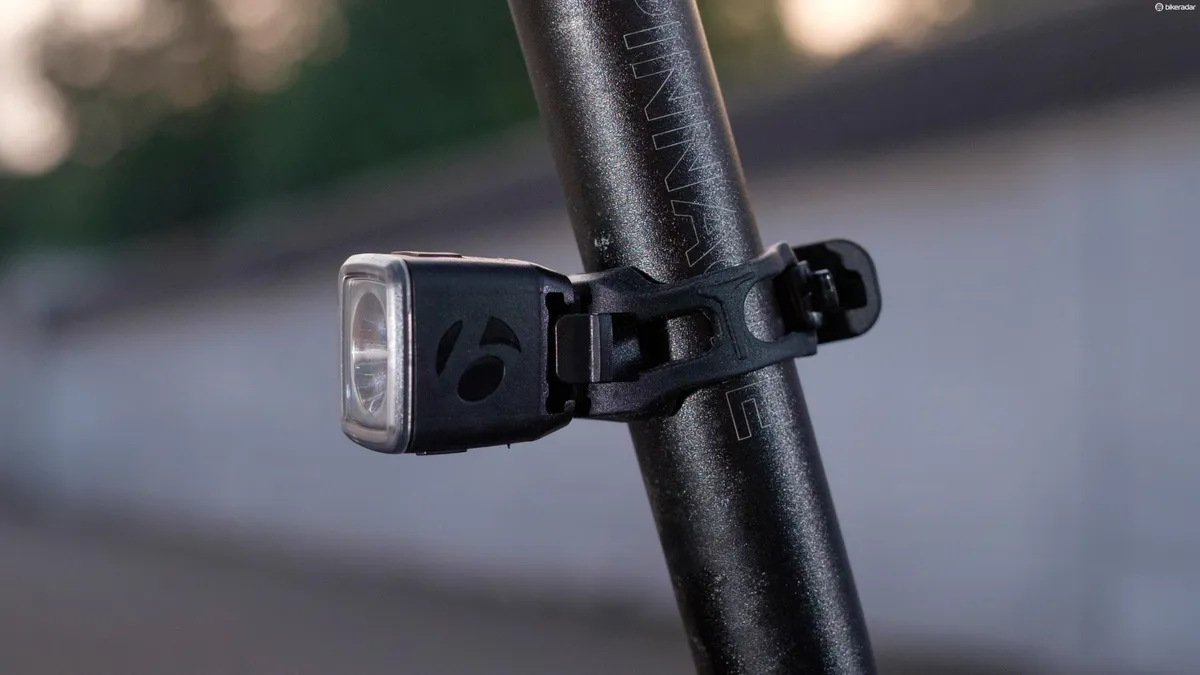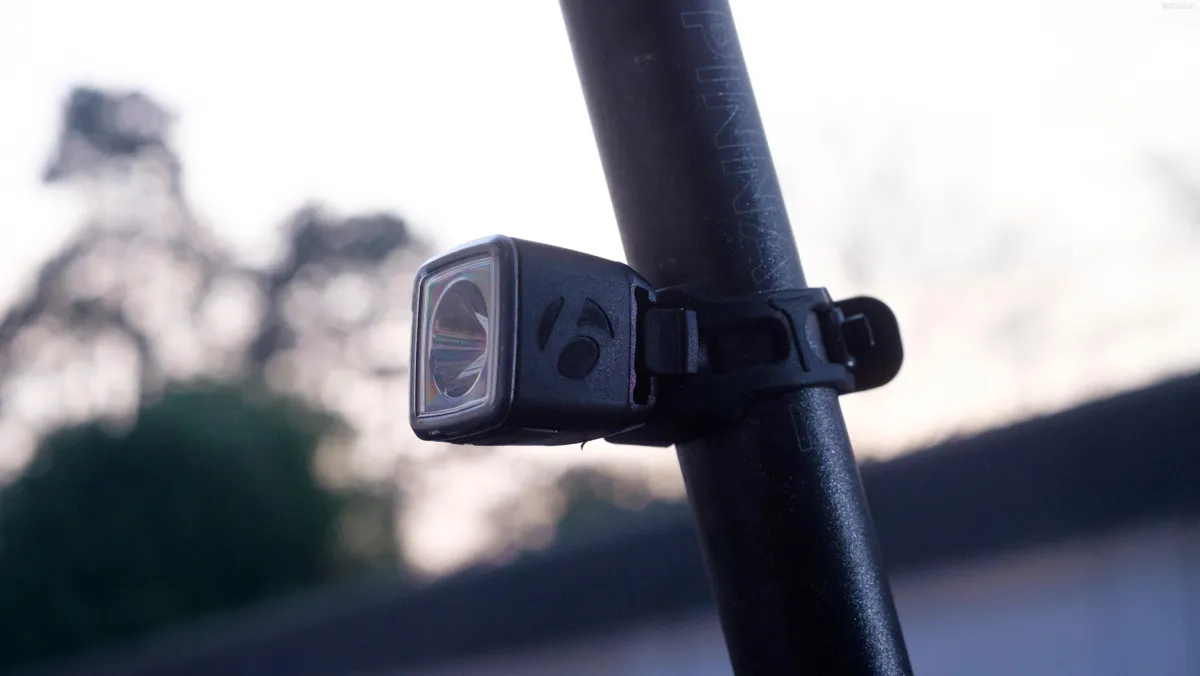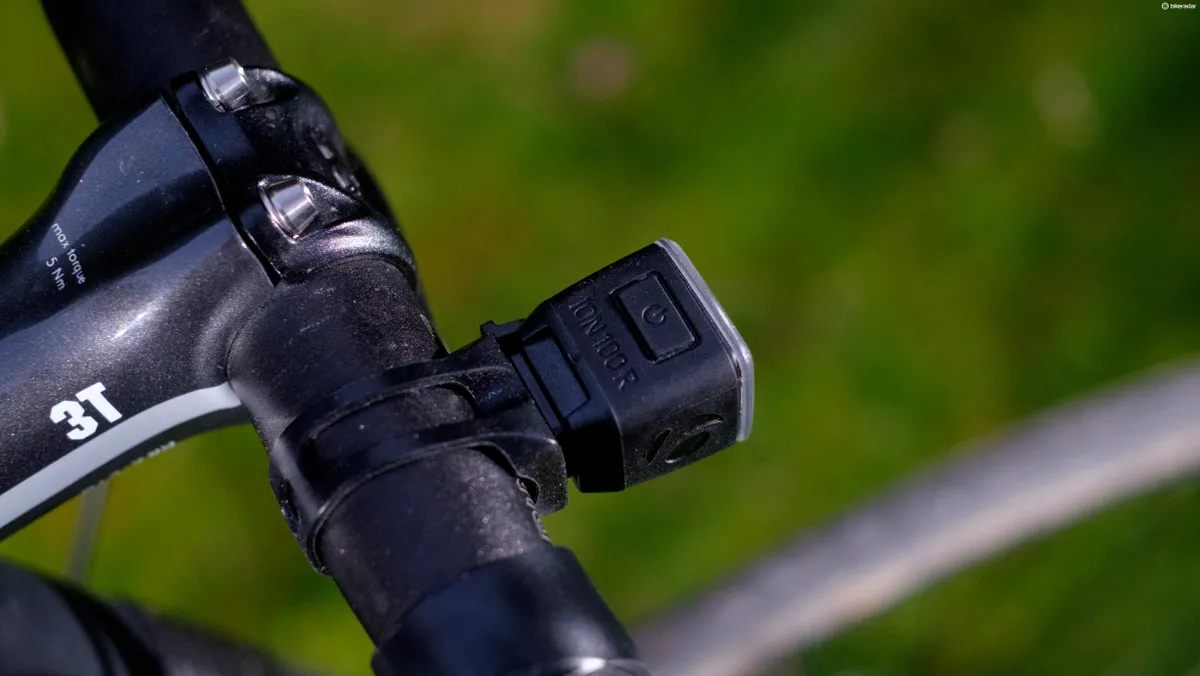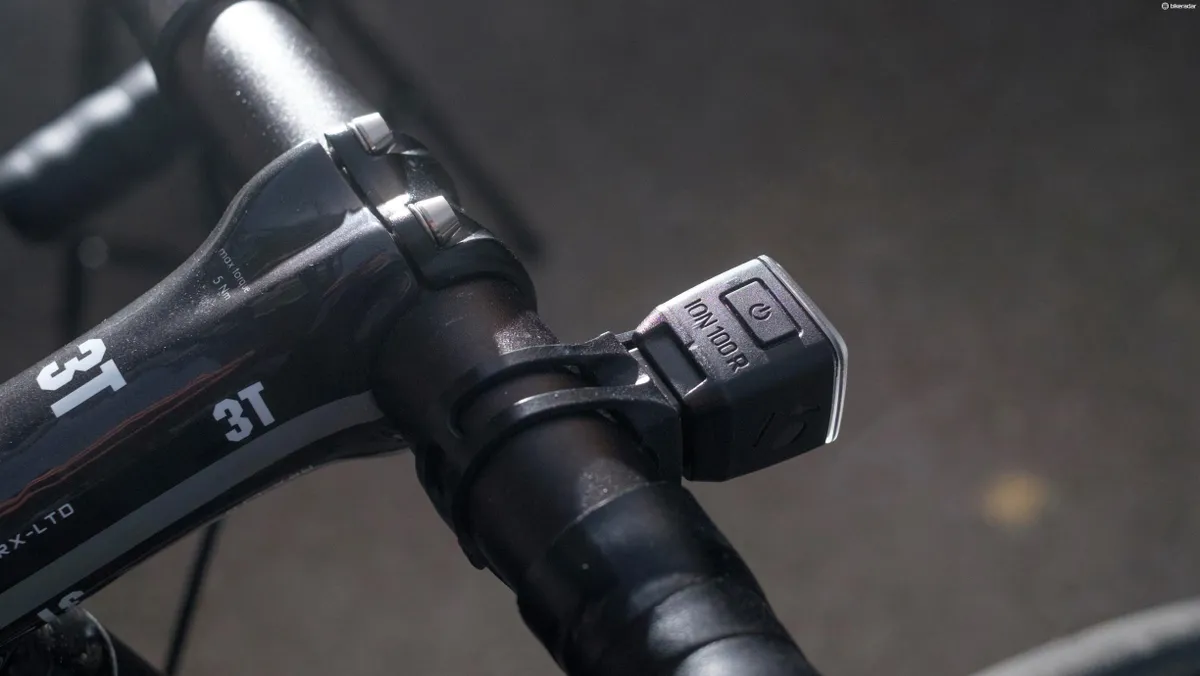These Bontrager lights differ from many on the market in that they're predominantly designed to be used in daylight hours. Much like the daylight running lights that are found on many modern cars, this twin lamp duo is designed to make sure you're seen as early as possible.
- How to ride safely in traffic
- The best bike lights for road cycling
- Exposure wants to make sure you're seen with Day Bright
I've lived with them for a few hundred miles already and have grown particularly fond of them.
Both units share the same tiny cubic form factor and at 26g they'll not add noticeable weight to your bike either. Fitting them is a doddle thanks to well-thought-out silicone straps that are happy on everything from the skinniest seatposts to the fattest handlebars.
Once in place, the lights themselves can be quickly separated from their straps via a quick-release mechanism, which secures in a similar way to a flash in the hot shoe of an SLR camera. That means you'll not have to remove the straps when they need charging. Convenient.
Bontrager Ion 100 R front light
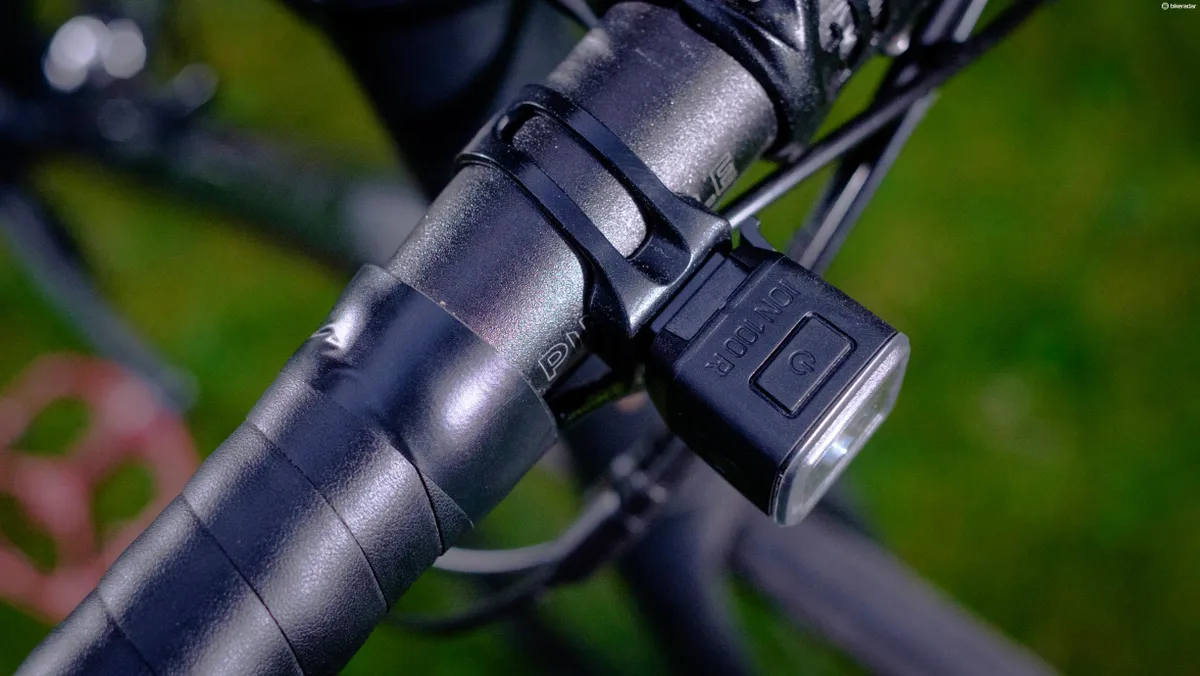
The front light produces up to 100 lumens from a single CREE LED, while clever optics on Bontrager's part mean these are supposed to be able to be seen from 500m away. While I didn't investigate this claim scientifically, the power of this unit was obvious and I noticed a real increase in drivers that had acknowledged me on the roads, this was particularly apparent during filtering in queuing traffic.
When night time falls the little Ion 100 R does an admirable job of imitating a more powerful lamp, but we'd not want to regularly rely on one for night riding. It's considerably more 'to be seen' than 'to see with'. Despite this, the wide and slightly blue beam does a better job than many other cheap lights.
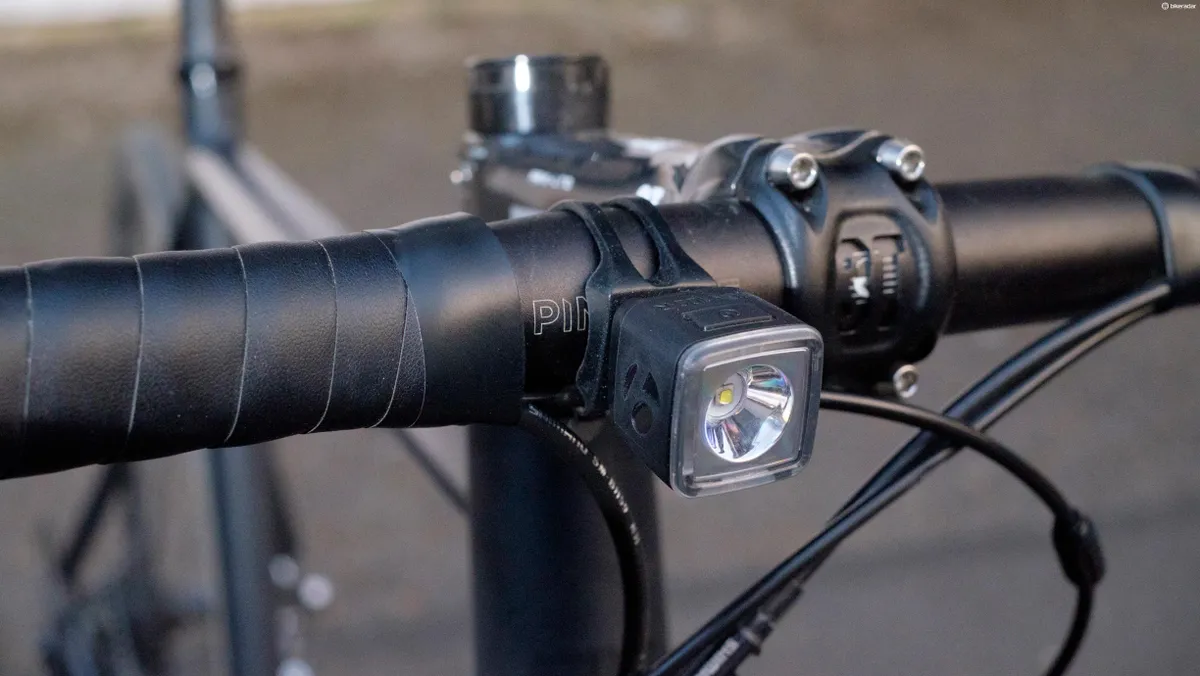
The light can switch between four illumination modes and thanks to a clever in-built sensor it'll tailor its output to match its surroundings. Using the same tech as the automatic display on your mobile phone, the lights will raise their output in both static and flashing modes during day time. Use the Ion at night in a static mode and it'll give you half the power that it does in the daytime. Its sensor is quick to react too, and will raise its output should it face opposing headlights, for example.
I loved the Ion's irregular flashing mode, which uses a series of rapid and slower flashes for maximum visibility. In this mode Bontrager claims a run time of five hours for daytime use, or seven hours at night. We found these claims to be accurate.
Bontrager Flare R City rear light
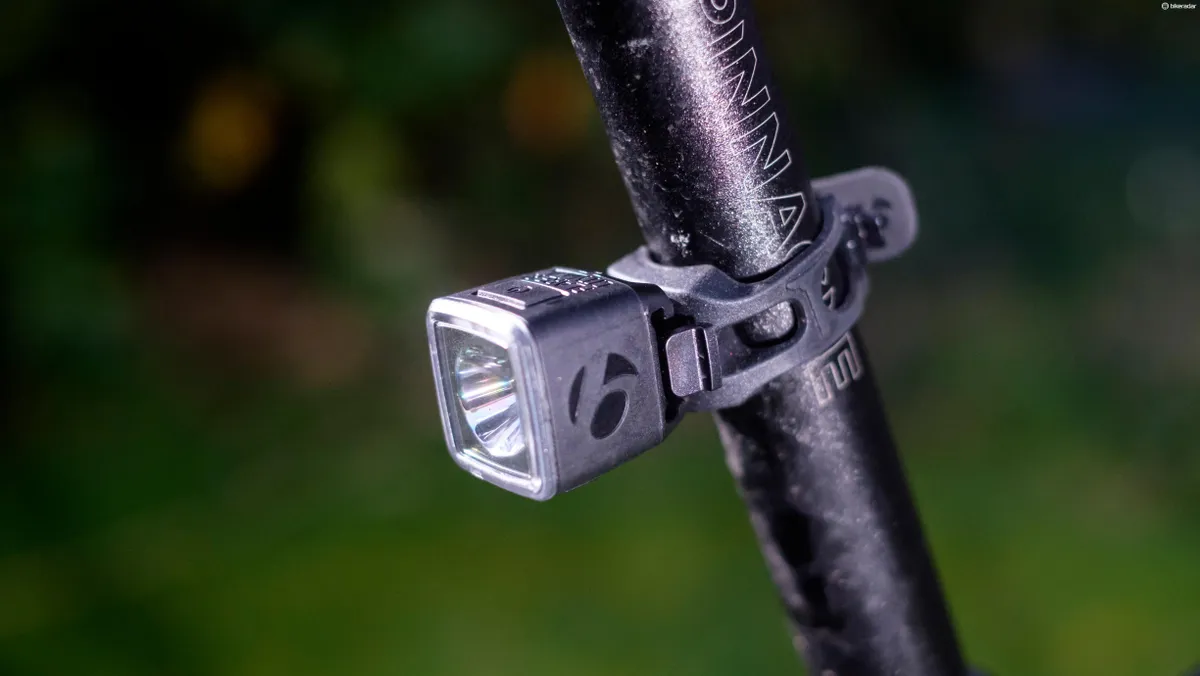
The rear light is very similar to the front unit but with a few key differences. The Flare uses a single red LED with a maximum output of 35 lumens, while specific wide-angle optics are designed to work perfectly in a city environment. The silicone strap uses a 16-degree angle to ensure the lamp sits at an effective angle.
Like the front light, the Flare features four modes, specifically a flashing/static mode for both day and night time. Inside, there's the same ambient light sensor as found in the Ion to control the light's power level and it's this combined with the light's lower overall output that amounts to considerably better battery life than the front unit.
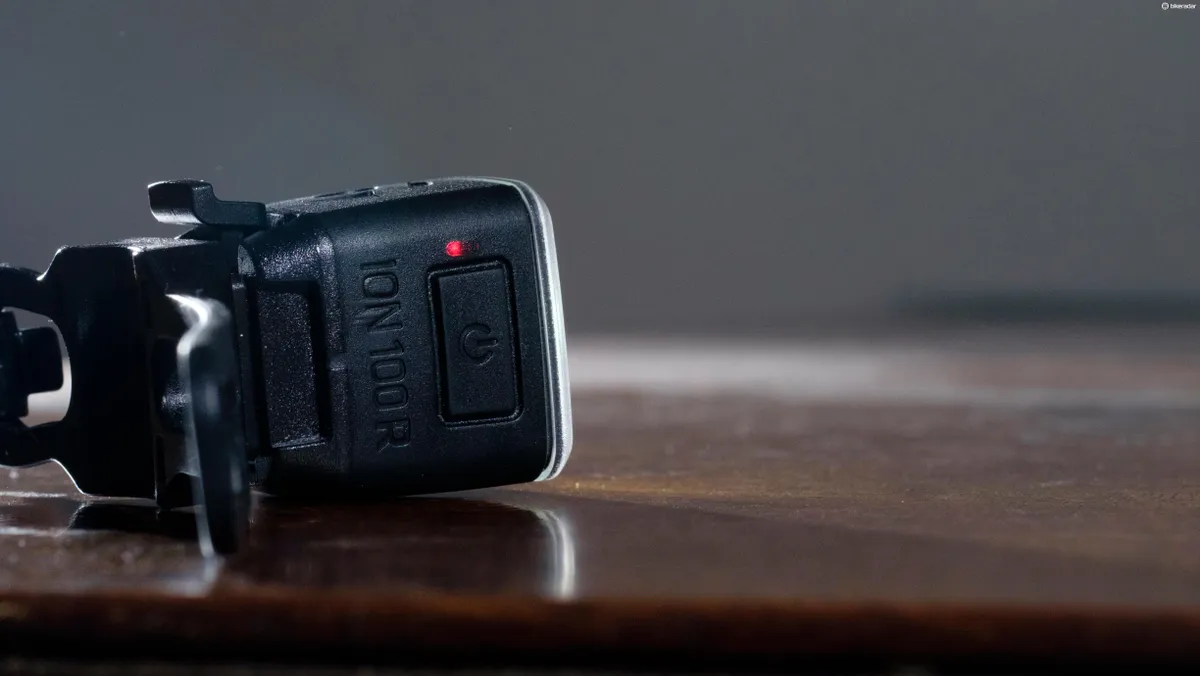
Claimed figures suggest the Flare in its flashing mode will provide 16 hours of light at night or eight hours in the day. The Flare's static mode lasts for a claimed 20 hours at night, this is achieved by dimming its output to just two lumens. In contrast, its daytime static mode pushes out ten times as many lumens, reducing the battery life considerably to a claimed three hours.
I only ever ran the light in its flashing mode and found Bontrager's battery claims to be accurate. Charging is simple thanks to a supplied mini USB cable and the quick-release mounts we mentioned earlier. It's worth mentioning that both units are available separately should you not require a set.
